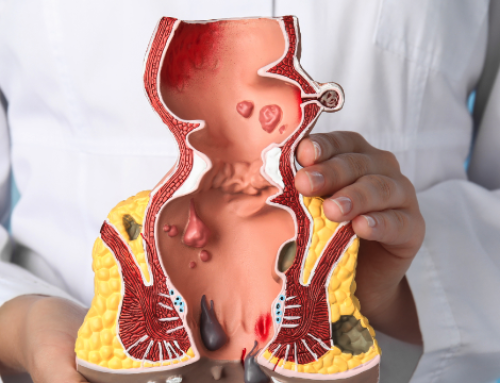Understanding Stage 5 Colon Cancer Symptoms
Colon cancer, also known as colorectal cancer, progresses through various stages. Typically, the staging system ranges from Stage 0 to Stage 4. However, the term “Stage 5 colon cancer” is not a standard medical classification. Most likely, people referring to “Stage 5” mean an advanced Stage 4 cancer, indicating further metastasis and severe symptoms. This blog will explore the symptoms of advanced Stage 4 colon cancer, highlighting the critical aspects you need to know.
What is Stage 4 Colon Cancer?
Stage 4 colon cancer is the most advanced form of the disease. At this stage, the cancer has spread (metastasized) to distant organs and tissues, such as the liver, lungs, or distant lymph nodes. The symptoms experienced by patients at this stage are often severe and can significantly impact their quality of life.

Key Symptoms of Advanced Stage 4 Colon Cancer
- Persistent Abdominal Pain and Discomfort
- Patients may experience ongoing pain or cramping in the abdominal region. This discomfort is often due to the tumor causing blockages or pressing against other organs.
- Changes in Bowel Habits
- Noticeable changes in bowel movements, including chronic constipation, diarrhea, or a feeling that the bowel doesn’t empty completely, are common. These changes occur because the tumor obstructs the bowel.
- Rectal Bleeding or Blood in Stool
- Blood in the stool may appear bright red or very dark, which is a significant symptom. It may indicate bleeding in the gastrointestinal tract caused by the tumor.
- Weight Loss
- Sudden and unexplained weight loss is a warning sign. The body may lose weight due to the cancer consuming a significant amount of energy and nutrients.
- Fatigue and Weakness
- Persistent fatigue and a general feeling of weakness are common in advanced colon cancer. This fatigue results from the body’s efforts to fight cancer and the effects of anemia due to internal bleeding.
- Nausea and Vomiting
- These symptoms often occur when the tumor causes a bowel obstruction, preventing the typical passage of food and waste.
- Jaundice
- If the cancer has spread to the liver, jaundice (yellowing of the skin and eyes) can occur. This symptom indicates liver dysfunction caused by metastatic tumors.
- Breathlessness and Cough
- When colon cancer metastasizes to the lungs, patients might experience respiratory symptoms like chronic cough and difficulty breathing.
End-Stage Colon Cancer: What to Expect
In end-stage colon cancer, the disease has spread extensively, and treatment options become limited. The focus shifts to palliative care, which aims to manage symptoms and improve the quality of life. Understanding and preparing for these symptoms can help patients and their families cope better.

Managing Symptoms and Palliative Care
Pain Management:
- Pain from end-stage colon cancer can be severe. Potent opioids and other pain medications are often prescribed to help manage this pain effectively.
Nutritional Support:
- Nutritional support becomes crucial as appetite decreases and weight loss becomes more pronounced. Dietitians can provide advice on nutrient-rich foods that are easier to consume.
Emotional and Psychological Support:
- Coping with terminal illness is emotionally challenging. Counseling and support groups can provide patients and their families with much-needed psychological support.
Clinical Trials:
- Enrolling in clinical trials might provide access to new and experimental treatments that could improve survival rates and quality of life.

Why Early Detection is Crucial
Early detection and treatment of colon cancer are vital. Symptoms of advanced-stage cancer are often severe and challenging to manage. Regular screenings, such as colonoscopies, are recommended, especially for those over 45 or with a family history of the disease. Early-stage colon cancer often presents with subtle symptoms or none at all, making screenings essential for early diagnosis and effective treatment.
Treatment Options for Advanced Stage 4 Colon Cancer
Treatment for Stage 4 colon cancer typically involves a combination of the following approaches:
- Chemotherapy: Helps to shrink tumors and manage symptoms.
- Targeted Therapy: Uses drugs that specifically target cancer cells.
- Radiation Therapy: Used to relieve symptoms and control tumor growth.
- Surgery: It may be an option to remove tumors from the colon or other affected areas.
Conclusion
Understanding the symptoms of advanced Stage 4 colon cancer is crucial for timely diagnosis and treatment. If you experience any persistent symptoms associated with colon cancer, seek medical advice immediately. Early intervention can significantly improve outcomes and quality of life.
This blog aims to provide a comprehensive understanding of the symptoms associated with advanced Stage 4 colon cancer. If you have any concerns about colorectal cancer symptoms, it is always a good idea to discuss testing options with your doctor. The sooner cancer is detected, the less time it has to progress and the better the potential outcomes. It is always best to catch cancer in the earliest stage possible!
Want to schedule an appointment with Dr. O’Connor? Get started here.




